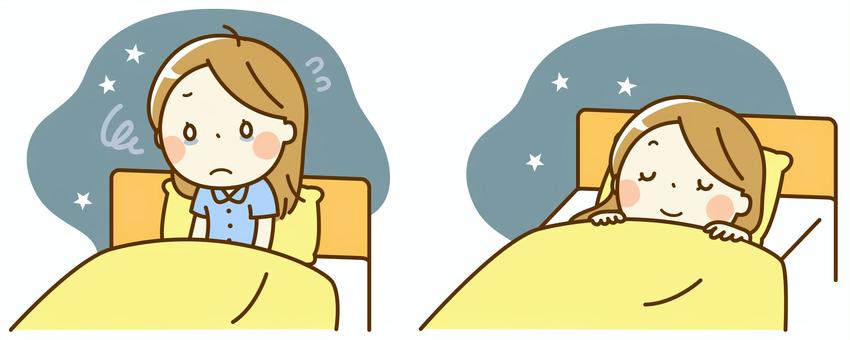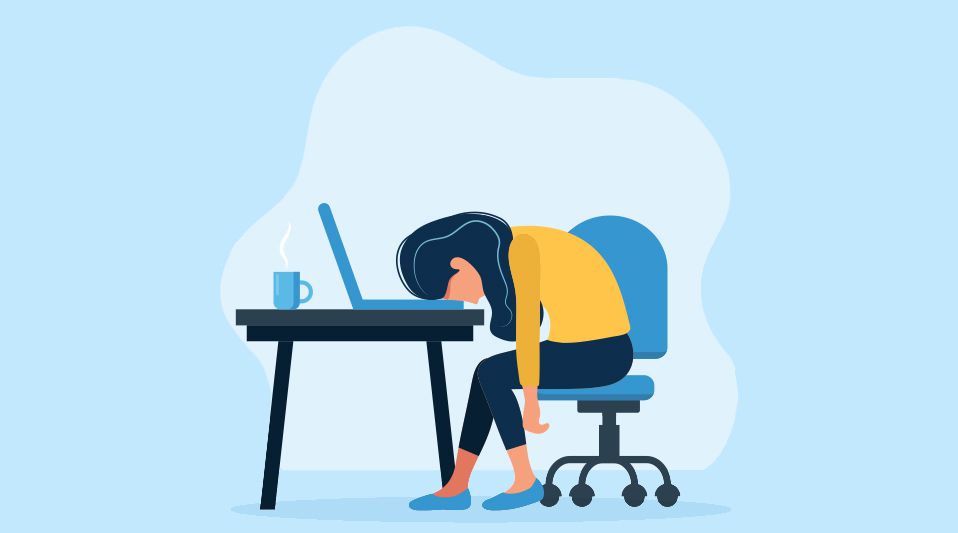
A few years ago, after the birth of my second child, I had almost become an insomniac. As a nocturnal child and a school-going toddler, my hands were full and I was severely sleep-deprived. It sounds like a familiar story to many, right? Eventually, my nocturnal child became diurnal; however, I remained nocturnal!! It was not so easy to get back to sleep after being awake for over a year. It had already become a habit.
Here we explore why good sleep is important and share some tips that may help you sleep better!

Why is Sleep so Important?
Many a time I come across people asking me this!! To put it in simple terms, here are the few things that happen when you sleep:
- Growth hormones are secreted by the pituitary gland, which helps in the growth and repair of the body.
- The sympathetic nervous system (which controls our fight or flight reactions) rests.
- The immune system releases cytokines, which reduce inflammation.
- The level of the stress hormone, or cortisol, decreases.
In short, your body rests, rejuvenates, and prepares for the next day.
What happens to the Body when you don’t Sleep Well?
Some of the things that happen when you stay wake are as follows:
- Growth hormone production is disturbed, which can lead to fatigue, weak heart muscles, weak bones, and low-quality hormones.
- High cortisol can lead to an increased risk of cardiovascular issues, a fatty liver, and high fat.
- A low level of cytokines can lead to inflammation and autoimmune diseases.
- The sympathetic nervous system, when always in an active state due to sleep deprivation, can lead to heart attacks.
_1729614016.jpg)
It Can Make or Break Your Body!
As it is important to have a healthy diet and exercise regularly, sleep is also equally or even more important. Often, people neglect it, among other things, in their daily routine. You might eat the best of the best foods rich in nutrients and exercise every day; however, you might be sleep-deprived. In such a state, the results of healthy food and exercise will not be visible.
Sleep can be classified as light, deep, or REM (rapid eye movement) sleep. Approximately 1.5–2 hours is the ideal deep sleep requirement; REM should be about 1.5–2 hours; and light sleep is the default sleep mode and is about 50% of the total hours we sleep. What is of significance is having 2 hours of REM and 2 hours of deep sleep; this is enough to feel rejuvenated. Some people have mastered this art and, hence, can sustain just 4 hours of sleep. Whereas a vast majority of us struggle to get this. Deep sleep is extremely important to your overall health, as the body naturally heals itself. Your organs detoxicate, your kidneys clean your blood, and your body replaces cells, heals wounds, and builds muscle tissues during this phase.
Symptoms
Before we get to the remedy, we need to assess if you are actually sleep-deprived. Some initial symptoms are –
- Deteriorating memory
- Mood swings
- Weak immunity
- Trouble in concentrating
- Low productivity
- Weight gain
- Low sex drive
- Difficulty in responding immediately
- Fatigue
If you are having any one or more of the above symptoms, it’s time you seriously work towards getting better sleep naturally.

What to do for Sound Sleep at Night?
To quit staying awake at night, you can follow these tips:
- Do deep breathing 30 minutes before bed: taking in a deep breath, holding for a count of 5, and then releasing it slowly. Simple, but very effective. This may make you dizzy, but do not worry; just continue doing it regularly.
- Change your reading habits: Reading can make some people sleep better and make voracious readers wide awake. Don’t read on the bed if you are a voracious reader.
- Have an early dinner: Have a light dinner 2-3 hours before bedtime to get sound sleep at night and stay healthy.
- Develop a pre-bed routine: Have a skincare routine before bed. Brush your teeth, wash your face, and apply a nice, soothing moisturizer all over yourself. Some fragrances, like lavender, can help you calm down and sleep better.
- Avoid gadgets: Keep your gadgets away from your bed and avoid using them for 1 hour before bedtime.
- Chamomile tea: Having a cup of chamomile tea 1 hour before bedtime can help you reduce stress and sleep better.
- Turmeric milk: One of the best foods that helps you sleep through the night is the age-old turmeric milk. It helps relieve your digestive system and aids in liver detox, which, in turn, helps you sleep better.
- Avoid rigorous exercise in the evening: Exercising in the evening can affect your circadian rhythm. Stick to just walking in the evening or doing simple yoga, which relaxes your body.
- Avoid drinking too many fluids 2 hours before bed: Having too many liquids post-dinner can wake you up multiple times in the night for urinating. Hence, avoid it!
- Try visualization meditations or any form of meditation: It has a two-way benefit. Not only does it help you sleep well but also helps you increase your productivity in all areas of life.
Read more about the benefits of herbal teas here!
Conclusion
To summarize, insomnia can affect the quality of your life. Following a few of these tips can significantly improve your sleep quality. The key is persistence. Do not give up and you shall see the results. Do have any other tips? Let us know in the comments section below!
Disclaimer: The information and other content provided in this blog, or in any linked materials, are not intended and should not be construed as medical advice, nor is the information a substitute for professional medical expertise or treatment. If you or any other person has a medical concern, you should consult with your healthcare provider.


.png)


